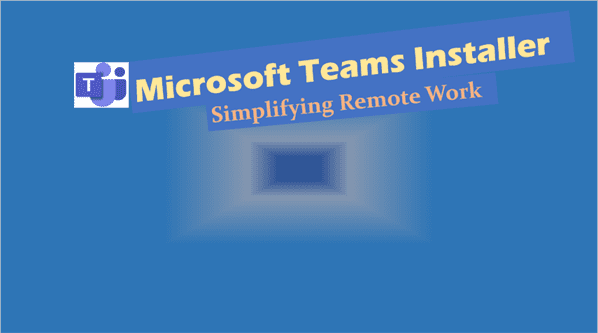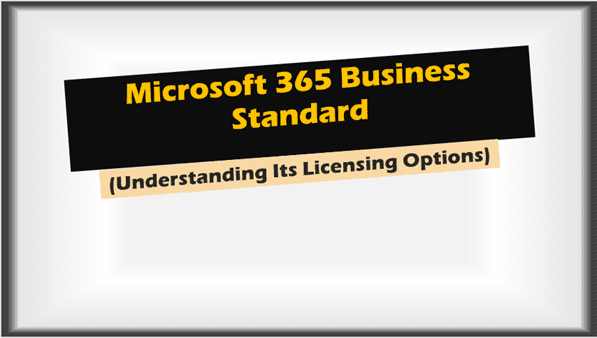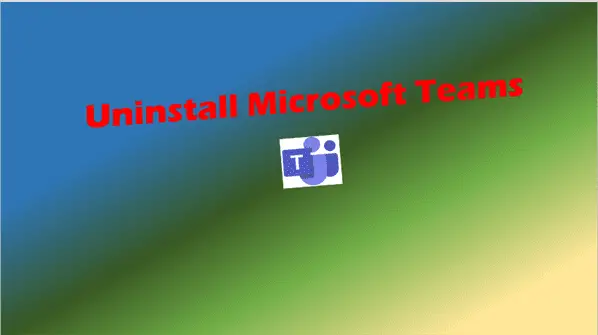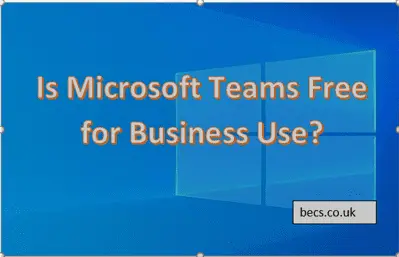Office 365 Enterprise E1: The Ultimate Guide for IT Professionals
Maximize your organization’s potential with Office 365 Enterprise E1. Our in-depth guide helps IT pros leverage E1’s features for optimal business impact.
In today’s fast-paced digital landscape, businesses are constantly seeking ways to enhance productivity, streamline collaboration, and stay competitive. Enter Office 365 Enterprise E1 – a robust cloud-based solution from Microsoft that’s revolutionizing the way organizations work. As an IT professional, understanding the ins and outs of this powerful tool is crucial for making informed decisions and maximizing its potential within your organization.
Introduction: Why Office 365 Enterprise E1 Matters
Office 365 Enterprise E1 is more than just a collection of productivity apps; it’s a comprehensive ecosystem designed to empower businesses of all sizes. Whether you’re part of a growing startup or an established enterprise, E1 offers a suite of tools that can transform your workplace dynamics.
But why should IT professionals pay attention to E1? Here’s why:
- Cloud-first approach: E1 leverages the power of the cloud, offering flexibility and scalability.
- Cost-effective: With its competitive pricing model, E1 provides excellent value for businesses.
- Seamless collaboration: Built-in tools foster teamwork and communication across your organization.
- Security and compliance: Microsoft’s robust security features help protect your sensitive data.
As we dive deeper into this guide, we’ll explore these aspects and more, giving you a comprehensive understanding of Office 365 Enterprise E1.

Understanding Office 365 Enterprise E1
At its core, Office 365 Enterprise E1 is a cloud-based service that combines essential productivity tools with powerful collaboration features. It’s designed to cater to the needs of modern businesses, offering a suite of applications that work seamlessly together.
Key Components of Office 365 Enterprise E1
- Exchange Online: Enterprise-grade email hosting with a 50 GB mailbox per user.
- SharePoint Online: A versatile platform for document management and collaboration.
- Microsoft Teams: The hub for team collaboration, offering chat, video meetings, and file sharing.
- OneDrive for Business: 1 TB of personal cloud storage per user.
- Web versions of Office apps: Including Word, Excel, PowerPoint, and OneNote.
These components work in harmony to create a unified productivity experience, accessible from anywhere with an internet connection.
The Pricing of Office 365 Enterprise E1
One of the most attractive aspects of Office 365 Enterprise E1 is its pricing structure. Microsoft offers E1 on a per-user, per-month basis, making it an affordable option for businesses of all sizes.
“Office 365 Enterprise E1 provides enterprise-grade tools at a price point that’s accessible to businesses of all sizes.” – IT Industry Analyst
While prices may vary based on region and specific agreements with Microsoft, E1 is generally positioned as a cost-effective entry point into the Office 365 ecosystem. For the most up-to-date pricing information, it’s best to consult the official Microsoft website or speak with a Microsoft partner.
Cost Comparison: E1 vs. Other Plans
To give you a better perspective, let’s compare E1 with some other popular Office 365 plans:
| Plan | Key Features | Relative Price Point |
|---|---|---|
| E1 | Cloud services, web apps | $ |
| E3 | E1 features + desktop apps, advanced security | $$ |
| E5 | E3 features + advanced analytics, voice capabilities | $$$ |
| F1 | Limited features for firstline workers | $ |
As you can see, E1 offers a balanced mix of features at an attractive price point, making it an excellent choice for many organizations.
The Office 365 Enterprise E1 Plan: In-Depth Look

Now that we’ve covered the basics, let’s dive deeper into what the E1 plan offers. Understanding these features is crucial for IT professionals looking to leverage E1 effectively within their organizations.
1. Exchange Online
Exchange Online is the backbone of E1’s communication capabilities. It provides:
- 50 GB mailbox per user
- Advanced anti-malware and anti-spam filtering
- Shared calendars and contacts
- Mobile email access
For IT pros, Exchange Online offers powerful admin controls and compliance features, making it easier to manage organizational communication.
2. SharePoint Online
SharePoint Online serves as a versatile intranet platform, offering:
- Document libraries with version control
- Team sites for project collaboration
- Company-wide communication tools
- Customizable workflows
IT professionals can leverage SharePoint to create tailored solutions for their organization’s specific needs.
3. Microsoft Teams
Teams has become the central hub for collaboration in many organizations. With E1, you get:
- Chat and threaded conversations
- Online meetings with screen sharing
- Integration with other Office 365 apps
- Guest access for external collaborators
For IT, Teams offers robust management tools, including security controls and usage analytics.
4. OneDrive for Business
Each user gets 1 TB of personal cloud storage with OneDrive, which includes:
- File sync across devices
- Easy sharing and collaboration
- Version history and file recovery
- Integration with Office apps
IT admins can manage sharing policies and storage limits to ensure data security and compliance.
5. Web Versions of Office Apps
While E1 doesn’t include desktop versions of Office apps, it does provide web-based versions of:
- Word
- Excel
- PowerPoint
- OneNote
These web apps offer core functionality and real-time collaboration features, suitable for many day-to-day tasks.
Unpacking the Office 365 Enterprise E1 License
Understanding the licensing model of Office 365 Enterprise E1 is crucial for IT professionals. Here’s what you need to know:
- Per-user licensing: Each user requires a separate license.
- Flexible assignment: Licenses can be easily assigned or removed as needed.
- No long-term commitment: Monthly billing allows for scalability.
- Mix and match: E1 licenses can be combined with other Office 365 plans within the same organization.
This flexibility allows IT departments to tailor their Office 365 deployment to the specific needs of different user groups within the organization.
How to Download Office 365 Enterprise E1
While E1 is primarily a cloud-based service, there are still some components that users might need to download. Here’s a quick guide:
- Office apps: Users can access web versions directly through a browser. No download required.
- Teams desktop client: Available for download from the Microsoft Teams website.
- OneDrive sync client: Can be downloaded from the Office 365 portal.
- Mobile apps: Available on iOS and Android app stores.
For IT pros, Microsoft offers deployment tools like the Office Deployment Tool (ODT) for managing installations across the organization.

Features of the Office 365 Enterprise E1 Plan
Let’s break down some of the key features that make E1 stand out:
- Cloud-based productivity: Work from anywhere, on any device.
- Real-time collaboration: Co-author documents simultaneously with colleagues.
- Advanced security: Built-in security features to protect your data.
- Compliance tools: Help meet regulatory requirements with eDiscovery and retention policies.
- Scalability: Easily add or remove users as your business grows.
- Regular updates: Always have access to the latest features and security patches.
These features combine to create a powerful productivity platform that can adapt to the needs of various organizations.
Comparing Office 365 E1 vs E3
One common question IT professionals face is whether to choose E1 or upgrade to E3. Here’s a comparison to help you decide:
| Feature | E1 | E3 |
|---|---|---|
| Exchange Online | ✓ | ✓ |
| SharePoint Online | ✓ | ✓ |
| Teams | ✓ | ✓ |
| OneDrive storage | 1 TB | 5 TB |
| Office apps | Web only | Web + Desktop |
| Advanced security | Basic | Advanced |
| Compliance tools | Basic | Advanced |
The choice between E1 and E3 often comes down to:
- Need for desktop Office apps
- Advanced security and compliance requirements
- Budget considerations
The Microsoft Office 365 Enterprise E1 vs E3 Debate
When deciding between E1 and E3, consider the following factors:
- User needs: Do your users require desktop Office apps?
- Security requirements: Does your organization need advanced threat protection?
- Compliance standards: Are you in a highly regulated industry?
- Budget: Is the additional cost of E3 justifiable for your organization?
“The choice between E1 and E3 isn’t just about features – it’s about aligning with your organization’s strategic goals and operational needs.” – IT Strategy Consultant
For many organizations, a mix of E1 and E3 licenses can provide the best balance of features and cost-effectiveness.

Key Takeaways
As we wrap up this comprehensive guide to Office 365 Enterprise E1, let’s summarize the key points:
- E1 offers a robust suite of cloud-based productivity tools at an affordable price point.
- The plan includes essential services like Exchange, SharePoint, Teams, and web versions of Office apps.
- E1’s flexible licensing model allows for easy scalability and management.
- While E1 lacks desktop Office apps, it provides powerful collaboration features.
- For organizations with higher security and compliance needs, E3 might be a better fit.
- IT professionals can leverage E1 to create a modern, flexible workspace for their organizations.
FAQ
- Q: What is the difference between Office 365 Enterprise E1 and E3? A: E1 offers cloud services and web apps, while E3 adds desktop Office apps and advanced security features.
- Q: What is included in Office E1? A: E1 includes Exchange Online, SharePoint Online, Teams, OneDrive, and web versions of Office apps.
- Q: How do I know if my office license is E1 or E3? A: Check your license type in the Microsoft 365 admin center under ‘Billing’ > ‘Your products’.
- Q: What is Microsoft E1 license? A: An E1 license provides access to Microsoft’s cloud-based productivity services and web apps.
- Q: Is E3 business or enterprise? A: E3 is part of the enterprise-level offerings within the Microsoft 365 suite.
- Q: Can I mix E1 and E3 licenses in my organization? A: Yes, you can have a mix of different license types within the same organization.
- Q: Does E1 include desktop versions of Office apps? A: No, E1 only includes web versions. Desktop apps are available with E3 and higher plans.
- Q: Can I upgrade from E1 to E3 later? A: Yes, you can upgrade your licenses at any time through the Microsoft 365 admin center.
Office 365 Enterprise E1 offers a powerful set of tools that can transform the way your organization works. As an IT professional, understanding its capabilities and limitations is key to making informed decisions and maximizing its potential within your organization.
Remember, the best choice for your organization depends on your specific needs, budget, and long-term goals. Whether you opt for E1, E3, or a mix of both, Office 365 provides a flexible, scalable platform that can grow with your business.
Related Posts to Office 365 Enterprise E1:
- Office 365 Enterprise E3: Your Ultimate Guide to Microsoft’s E3 License
- Office 365 Enterprise E5: Unleashing the Power of the E5 Trial
- How to Join a Meeting on Microsoft Teams (in 3 Easy Steps)
- Uninstall Microsoft Teams: Master the Uninstallation Process Today
More Information:





